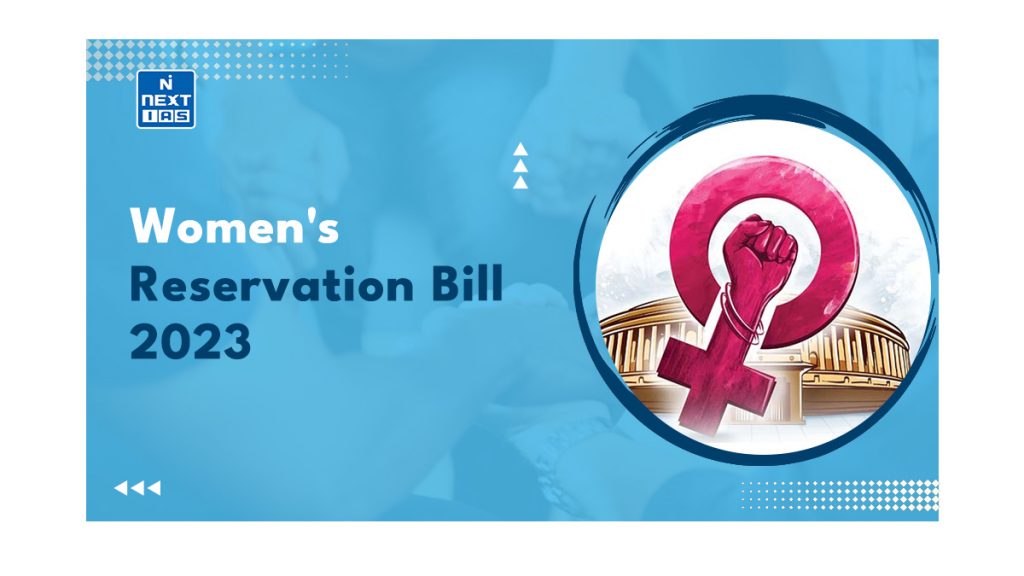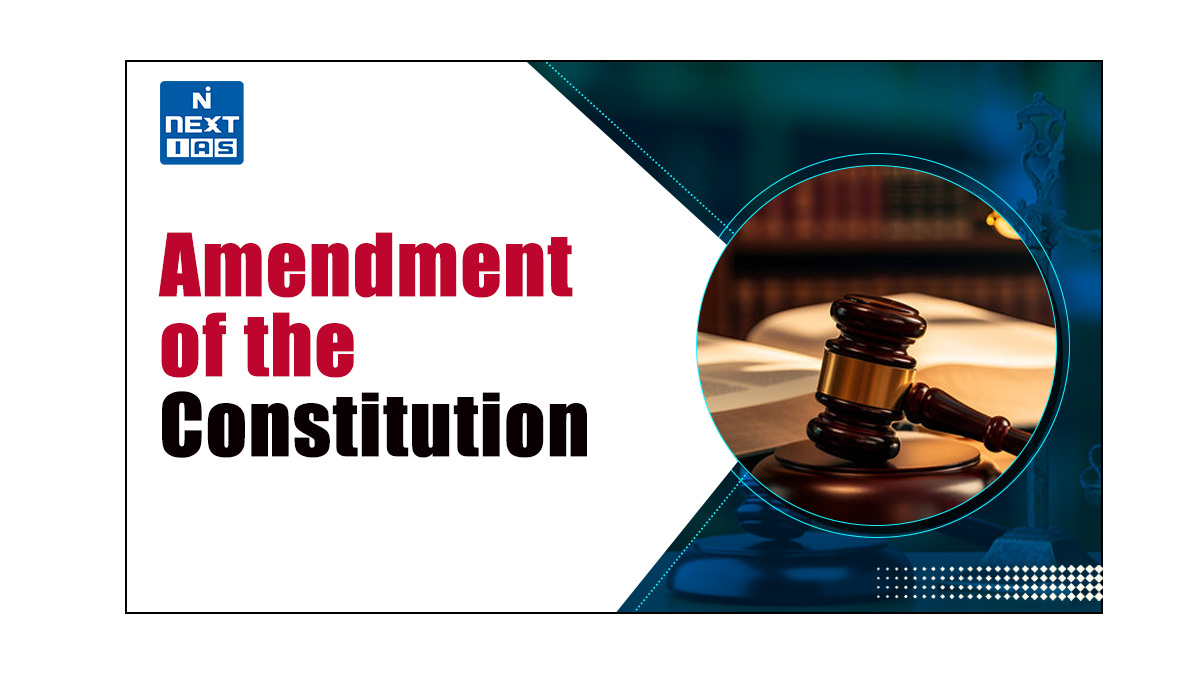
The Nari Shakti Vandan Adhiniyam or the Women’s Reservation Bill was recently passed by the Parliament. The Women Reservation Act aims to reserve one-third of all seats to women in Parliament and State Legislatures. This article aims to provide a comprehensive overview of the Women’s Reservation Bill 2023 and it’s need, features, challenges and way forward.
What is the need of the Women’s Reservation Bill?
The Women’s Reservation Bill will ensure that 50% percent of the population is adequately represented in the Parliament. The coming of women in the political spectrum will make sure they are receptive to the issues of women, are empowered and become role models.
Women constituted only 4.4% of the electorate in 1952, the year of the first Lok Sabha election. Following the 2014 Lok Sabha elections, that percentage increased to a mere 12.15%. In the Indian parliament, neither male nor female candidates are allocated a seat. There are 39 women in the Rajya Sabha and 74 in the Lok Sabha overall as of right now.
What are the constitutional changes made by the Women’s Reservation Bill?
- Article 330A – The bill calls for the insertion of Article 330A, which takes its inspiration from Article 330’s provisions on the Lok Sabha’s seat reservations for SCs and STs.
- Article 332A – The article requires the reservation of seats for women in every state Legislative Assembly, as introduced by the bill.
- Changes in Article 239AA – The bill added that the legislation created by parliament shall apply to Delhi, the National Capital Territory, to Article 239AA(2)(b).
Features of the Women’s Reservation Bill
- One-third seats for Women: The Act aims to reserve one-third of all seats for women in the Lok Sabha and the State Legislatures.
- Reservation among the reserved seats: The Act shall also reserve the seats for the women among the reserved seats. The allocation of reserved seats shall be determined by such authority as prescribed by the President of India.
- Reservation for SC and ST Sections: The Act shall also reserve one third of the seats.
- Rotation of Seats: The reserved seats shall be allotted by rotation to different constituencies in the state or union territories.
- Time period of the Reservation: The Act shall remain in force till 15 years of the commencement.
Advantages of the Women’s Reservation Bill
The reception of this legislation is because of the advantages it has for women. The Act has the following advantages:
- Affirmative action: The Act aims to empower the women by bringing them in the political fold. The Act will ensure that women are duly represented in the politics of the nation. According to the Global Gender Index India occupies 127th place out of 146 countries in the 2023 report. Under the Political Empowerment category women represent 15.1% of parliamentarians.
- Successful template in the Panchayats: The existing reservation system in the Panchayats have shown positive results pointing to the need of replicating the same pattern at the national level.
- Gender Sensitivity: It is a belief that women are more receptive and sensitive to women related issues. Their inclusion in the lawmaking will have a positive impact in resolution of women related issues.
Issues with the Women’s Reservation Bill
Despite the advantages the Act offers it is a contested issue with the opponents against its inception.
- Diversion from larger electoral reforms: The reservation may divert the attention from larger electoral reforms like that of criminalisation of politics and inner-party democracy.
- Issue of free and fair election: There is an issue that the reservation for women may be disadvantageous for male candidates who will have to contest on two third of the seats.
- Unequal status of women: It is argued that it will perpetuate the unequal status of women since they would not be perceived to be not getting elected on merit.
- Restricts Voter Choice: The reservation of seats to women in parliament restricts the choice of the voters to women candidates who the people may or may not prefer.
- Disincentive for sitting MPs: The rotation of reserved seats in each election may lessen an MP’s incentive to work for his or her district because he or she may lose the right to run for re-election there.
- Enforcement of the Bill: There are ambiguities in the enforcement of the reservation in the actual election. The reservation cannot be implemented before the 2024 Lok Sabha elections. It can only be implemented when India completes its delimitation exercise.
- Non-Uniform Application: The Act does not make any kind of provisions in Rajya Sabha and Legislative Councils.
Way Forward
The subject of women’s representation in the Parliament and Assemblies is a divisive and polarizing issue. But at the same time it is essential that women get their due share in political representation. The move is in the right direction for the empowerment of women. There is also a need to develop mechanisms for the early application of the Women’s Reservation Bill.
Source: Vikaspedia
GS - 2




